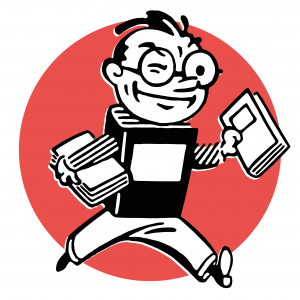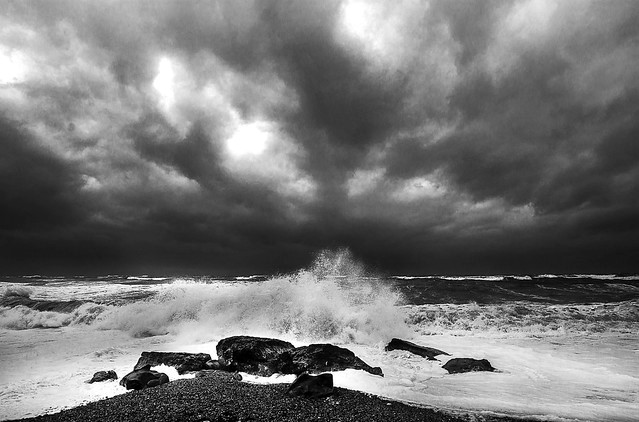Following the deaths of property tycoon Charles Rudd and his CEO Nick O’Keeffe in a sailing accident, William Rohm has travelled to Liverpool to sign-off the life insurance claims. After meeting Rudd’s company secretary Guy Danvers, Rohm drives north along the Lancashire coast to visit Rudd’s widow and on route, receives an unexpected phone call from Evie Malone, one of Rudd’s PAs, who tells him that her boss died a worried man. Rudd’s widow then casts doubt on the Coroner’s verdict of Death by Misadventure and Rohm realises there’s more to this case than he first thought. Outside, he spots two men in parked car, watching.
The car with the blacked-out windows hadn’t followed him, he was sure of it. A mile after leaving the Rudd mansion, Rohm had seen a sign to the beach, parked-up and walked down to the water’s edge. A stiff westerly was blowing-in from the Irish Sea and black clouds were gathering out in Liverpool Bay. As the waves broke and surged onto the shore, he thought of how Rudd and O’Keeffe had drowned out there on a stormy Saturday last December and he decided that Ezra Rudd was right; there were still unanswered questions about her husband’s death. Rohm stayed there for fifteen thoughtful minutes then drove back to Liverpool. If anyone had been watching him, he would have seen them.
Back at his hotel, he had a shower, read through his emails then called his boss, Joanne Stet. She was the Claims Director and on the Main Board of the firm but she listened in silence to his news – the meeting with Danvers, the call from Evie Malone and the surreal interview with Charles Rudd’s drunk but not so merry widow. Rohm didn’t tell Jo about trying to coax information out of Mrs Rudd’s security guy, Danny. It was against the rules and could have got the firm into trouble. And he said nothing about the men in the parked car outside the gates of the Rudd estate. That would have sounded like paranoia.
“I’ll message you later, after I’ve seen Evie,” said Rohm as he tried to bring the call to a close. Time was getting on – he was due at the Artisan Club at nine.
“Okay, but don’t go looking for work, “said Jo. “The Coroner is satisfied the deaths were accidental and so are we. In the morning, tell Danvers we won’t pay for the dispute contingency then sign it all off and come home.”
“I might speak to the cops before I leave – just for the sake of completeness.”
“If you must.”
“And maybe call a couple of Rudd’s business associates…”
“We’ve talked about this before Will. You’re our star player and we love you but the firm doesn’t like its people going off-piste. One of these days you’ll get avalanched.”
Rohm made his usual reassuring noises about making discrete enquiries then said goodbye.
An hour later, after he’d wolfed-down a fish supper in his room and changed into a smart-cas’ outfit of chinos, collared shirt and windcheater, he was ready to go. It was a twenty-minute walk through what turned out to be a deserted business district. If there was a Liverpool night-time economy on a Monday, it hadn’t kicked-off yet so apart from three guys bedding-down in a doorway, the dark streets were empty. It was spitting with rain and a chill wind was coming-off the Mersey. It was a bad night to be sleeping rough. Rohm thought how every night must be a bad night when you were homeless but that some nights were worse than others. This was one of them.
He found the Artisan Club down a dingy alleyway between a pair of tall red brick office buildings and rang the doorbell. After a brief exchange on the entry phone and a long wait in the cold, Rohm was finally let-in by a bowtied lad who brusquely greeted him before darting back up the stairs.
“Come ahead please, Miss Malone is waiting in the Stubbs room,” he said, vanishing from view.
Rohm reached the top of the narrow staircase and walked into a bar full of people in suits. It was raucous – anyone who wasn’t talking loudly was laughing. The doorman had morphed into the barman and seemed to be serving five customers at once. He looked up at Rohm and pointed down the hall as he shouted above the clamour.
“Second room on the right.” Rohm mouthed his thanks and the guy gave him a cheery thumbs-up.
The walls of the long corridor were covered cornice-to-skirting with etchings, watercolours and sepia-toned photographs as well as shelves of assorted pottery and old books. It looked like the home of an eccentric Edwardian collector, frozen in time.
He found Evie Malone sitting on her own in a snug full of paintings of horses and eighteenth-century rural settings. Rohm assumed there was a connection between the artist George Stubbs and Liverpool but he neither knew nor cared what it was. He hated that stuff.
Evie looked at him as he walked through the door. The fixed smile she’d been wearing at the office wasn’t there anymore. Now she just looked nervy. Nervy and sad.
“You found it okay then?” she said.
“Yes, no problem. Interesting place…”
“It was started in the 1850s for local artists to meet business people.”
“And which are you Evie?” said Rohm sitting down beside her.
“Both. I work in an office to pay the mortgage and do art for fun. I’m an illustrator. I designed the company logo.”
“I’ve seen it – it’s good.”
She half-smiled at him, grateful for his encouraging interest.
“Would you like a drink?” she asked.
“No – thank you. So what’s the story on Mr Rudd? You said he was worried about something before he died”
She looked at him and bit her lip. Rohm thought she was going to change her mind about confiding in him and was about to say something reassuring when she started talking. She spoke quickly as if now, at last, she could share her burden.
“It was the end of November – two weeks before Charlie and Nick were drowned. A couple of land deals had fallen through and the hotel project in Manchester was running behind schedule but they’d just completed the Blue Havens sale and Charlie, Mr Rudd, was happy. He and Nick had been fighting about it. I think Charlie wanted to sell and Nick didn’t.”
“Was that unusual? – that they’d argue over a business decision I mean.”
“It had never happened before. Nick just did what he was told, like the rest of us.”
“But this time it was different.”
Evie shrugged, sipped her white wine and continued on.
“A few days after closing the Blue Havens deal, Charlie came into the office and started shouting about our lack of security. He hired a firm of consultants and within a week, the place was like MI6. The same at his home I think.”
“Yes – I was out there earlier today. It’s in permanent lock-down. Did Mr Rudd tell anyone why he suddenly got so nervous?”
“No. But then he never said why things had to happen – just what and when by.”
She hesitated again, took a mouth full of wine and swallowed hard.
“And he hired a man named Danny to be with him – I suppose he was a bodyguard. Charlie was frightened. One night, three days before he died, he woke up in a cold sweat. He’d always confided in me but not this time. I didn’t see him again after that.”
Rohm looked at her and half-raised an eyebrow.
“I wasn’t just his PA or another one of his girls on the side. We loved each other Mr Rohm. I want to know what really happened.” She had tears in her eyes.
“You think it’s something to do with the Blue Havens deal?”
“Everything changed after that.”
“You didn’t tell the cops or the Coroner’s office about this?”
“And say what exactly? I had no proof of anything and going public would have hurt his family and the business.”
“The company who bought the Blue Havens chain of marinas, Euparal – did their people ever come to the office”
“Just the once. They weren’t UK-based – the HQ was in Cannes I think. Two of the men were French but I don’t know about the other one. Charlie and Nick met them again in London a couple of times. I wasn’t invited.”
Rohm studied her for any trace of deception.
“Okay – I’m going to follow this up,” he said finally. “But not because I’m some sort of Knight Errant. These insurance claims are worth a lot of money – our investor’s money. I don’t suppose it’ll lead anywhere but I’ll keep you posted.”
“Thank you,” she said, squeezing his hand. Then she leaned across and kissed him on the cheek. She looked beautiful and lonely and needed someone to comfort her. It was time for him to go.
He left Evie sipping her wine alone amongst the animal portraits and walked back to the hotel in the rain. He grabbed a bourbon and ice on his way through the bar then went up to his room and sat down at the small desk.
It was late but he fired-off an email to the office asking them to set-up a conference call between him, Jo Stet and the Liverpool police. His team would get it first thing in the morning and do their best to arrange something but at this short notice, he wasn’t optimistic. These days, the police were low on resources and even lower on morale. It would probably take them a month just to say they didn’t have time to speak to him.
After he finished his drink, he should have just switched off the laptop and turned-in for the night but there was still a millilitre of adrenalin he could make use of. He wanted to know more about Euparal and the Blue Havens deal; the deal that Evie thought had changed everything.
He logged-on to his company’s search engines. They were scary. They could find out anything about anyone, anywhere. There was even talk that the Security Services and the Metropolitan Police had made use of them but he hadn’t asked too many questions about it. That stuff was way above his pay grade.
A re-edited and revised omnibus edition of Liverpool Bay is now available. The complete short story can be accessed as an eBook via Amazon-Kindle.
© Tom Marriott, December 2019
This story and its characters are fictitious. Some real places, institutions, agencies and public offices are mentioned but the people and organisations involved are wholly imaginary
Photos by Hannah Gerrish
Acknowledgements: Raymond Chandler, Robert Macfarlane
Thanks to: Ed Gaynor, Hannah Gerrish, Stephen Lee, Rod Mcleod, Jeremy Price, Philip Rees-Roberts and Nick French.








